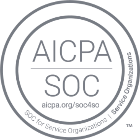Gone are the days when facility managers (FMs) focused solely on the smooth operation, safety, and efficiency of buildings. Today, excelling in this dynamic field requires a broader skill set, including ensuring a top-notch workplace experience, analyzing data effectively, and mastering the latest workplace technologies. This shift reflects the rapidly evolving landscape of facility management, where sustainability and employee wellness have become just as crucial as traditional responsibilities.
With this in mind, we invite you to discover the ten essential facility manager skills to master in 2024, offering a pathway to professional growth that promises to enhance your capabilities and improve your workplace management. Join us on this journey to explore how you can lead your facilities to a future marked by unparalleled success.
TL;DR:
- Today's facility managers need to go beyond traditional responsibilities, focusing on creating a superior workplace experience, analyzing data effectively, and mastering the latest technologies.
- The rapid evolution of workplace demands makes it essential for facility managers to continually develop their skills, aligning spaces with health, well-being, and productivity objectives.
- Visionary leadership that motivates and manages teams effectively is crucial for fostering a collaborative and inclusive work environment.
- Mastery in conveying complex information clearly and engagingly across all organizational levels is fundamental.
- Prioritizing workplace experiences that promote well-being, creativity, and efficiency is key to employee satisfaction and productivity.
- Keeping abreast of technological advancements and leveraging them to enhance facility operations and experiences is essential.
- Implementing sustainable practices and ensuring workplace safety are critical responsibilities, reflecting a commitment to environmental stewardship and organizational integrity.
- Facility managers must utilize analytical thinking to make informed decisions and employ problem-solving skills to address and preempt facility management challenges effectively.
Why It's Important to Develop and Improve Your Facility Manager Skills Continuously?
Continuously developing and improving facility manager skills is paramount in today's rapidly evolving workplace. As organizations strive for spaces that are efficient and conducive to health, well-being, and productivity, the role of FMs becomes increasingly critical. These professionals are at the forefront of designing and supporting environments that meet the complex needs of employees, fostering social networks, and enhancing productivity.
With the demand for higher quality, multifunctional spaces, facility managers must embrace transformational challenges and adopt interdisciplinary approaches. By doing so, they can effectively manage the increasing complexity of operations, which now require holistic solutions integrating expertise from various domains.
Moreover, as organizations continually reassess how, where, and by whom work is performed, FMs have a unique opportunity to lead and facilitate these decisions. With a deep understanding of the organization and the built environment, FMs can significantly contribute to creating flexible, purpose-fit spaces that reduce work friction. This ongoing improvement of facility manager skills positions FMs as indispensable leaders in organizational strategy and ensures they can adapt to and anticipate the future needs of the workplaces they manage.
-1.png?width=750&height=423&name=Blog%20post%20photos%202%20(2)-1.png)
10 Must-Have Facility Manager Skills, Explained
Let's delve into the specifics of the nine essential facility manager skills to master in 2024.
#1: Leadership and Team Management: Effective Strategies for Leading and Managing Teams
Leadership and team management are some of the first critical facility manager skills, requiring FMs to be more than supervisors—they must be visionary leaders. This involves smartly delegating tasks to the right team members based on their skills and experience and motivating them by instilling a sense of purpose. They should inspire team members to understand how their work fits the company's goals.
Effective facility managers must balance being assertive with listening, creating a democratic space where opinions are valued, yet decisions are made quickly and in line with the company's strategy. Handling conflicts well through negotiation and mediation is crucial to maintaining team harmony and productivity.
Building a supportive and collaborative work environment is essential. This means fostering a mutual respect and inclusion culture, where diversity is celebrated and everyone feels valued. This not only boosts morale but also encourages innovation and creativity.
A facility manager skilled in leadership and team management ensures the facility runs smoothly and supports the team's growth, leading to long-term success for the organization.
#2: Communication Skills: Importance of Clear and Effective Communication in Facility Management
Effective communication is a cornerstone in facility management, emerging as an indispensable skill for achieving success. For facility managers, the art of communication transcends mere interaction, requiring the mastery of conveying messages with clarity and simplicity across the entire spectrum of the organizational hierarchy. This includes bridging communication gaps from the boardroom to the boiler room—engaging with executives, maintenance personnel, and everyone in between. The challenge lies in presenting complex ideas in an accessible format, ensuring the essence of the message is retained without compromising its accuracy.
This intricate balance demands a commitment to active listening. By fostering an environment of mutual understanding, facility managers can cultivate a sense of community and cooperation among all stakeholders. In this multifaceted role, the ability to navigate conversations with finesse and adaptability is not just beneficial—it's essential. Smooth and effective communication thus becomes the linchpin in orchestrating the complex web of relationships and operations that define the essence of facility management.
#3: Employee-Centric Approach: Focus on Creating Top-Tier Workplace Experiences
The employee-centric approach has emerged as a crucial skill for facility managers. Recognizing that a positive workplace experience is integral to employee satisfaction and overall productivity, facility managers are at the forefront of creating spaces beyond just functionality. They are tasked with transforming offices into settings that promote well-being, creativity, and efficiency.
This approach involves a keen focus on designing workspaces that are not only aesthetically pleasing but also health-promoting and inclusive. By incorporating ergonomic furniture, ensuring easy accessibility for all employees, and adopting green practices, facility managers make health and comfort central to the office layout. Moreover, they leverage the latest technological advancements to streamline operations and enhance workplace convenience, further elevating the employee experience.
Such environments foster employees' sense of belonging and motivation, encouraging collaboration and innovation. FMs, by prioritizing an employee-centric approach, play a pivotal role in crafting top-tier workplace experiences that not only meet the immediate needs of employees but also support the long-term goals of the organization. This attracts top talent and contributes significantly to retaining them, proving that a focus on employee well-being is indeed a catalyst for organizational success.
.png?width=928&height=523&name=Blog%20posts%20photo%20(14).png)
#4: Organizational Skills: Techniques for Organizing and Prioritizing Tasks
Organizational skills are indispensable for facility managers due to the complex nature of their responsibilities, which span overseeing maintenance, ensuring security and compliance, managing budgets, and coordinating with vendors. These skills enable them to multitask effectively, maintain preventive maintenance schedules, manage budgets wisely, and ensure safety regulations are met, all while keeping track of multiple projects and tasks. Efficient organization helps avoid costly repairs, ensure timely project completion, and maintain overall facility efficiency.
To manage and prioritize tasks efficiently, facility managers can employ tech and task management software to track deadlines and leverage digital calendars to schedule maintenance and meetings. Prioritizing tasks based on urgency and importance, delegating responsibilities where appropriate, and employing strategic planning for emergency preparedness are also crucial—these organizational strategies not only enhance operational efficiency and the smooth and safe running of facilities.
#5: Problem-Solving Skills: Approaches to Identifying and Solving Facility Management Issues
Problem-solving skills are indispensable for facility managers due to their vast challenges in maintaining and improving buildings, services, and… workplace experience. These skills enable them to tackle issues ranging from emergency repairs to strategic planning for space utilization and energy efficiency. Effective problem-solving ensures operational continuity, safety compliance, and cost savings and enhances the overall user experience within the facility. By identifying root causes and implementing innovative solutions, facility managers can prevent disruptions, meet legal requirements, and manage resources more efficiently.
Moreover, problem-solving is crucial for crisis management, allowing facility managers to respond to emergencies and minimize their impact quickly. It also plays a vital role in stakeholder satisfaction, as it helps address the needs and concerns of building owners, tenants, and employees. Utilizing approaches like root cause analysis, preventative maintenance, and technology can significantly aid this process. Continuous learning and stakeholder engagement further empower facility managers to avoid potential issues, ensuring facilities are safe, compliant, and aligned with organizational goals.
#6: Safety Management: Ensuring a Safe Work Environment for Everyone
Safety management responsibility goes beyond mere compliance with regulations; it involves a deep understanding of workplace safety and security norms and proactively identifying and mitigating potential hazards. To develop and enforce effective safety protocols, facility managers must be well-versed in health and safety requirements, occupational health regulations, and risk management practices. Their role includes conducting audits, providing employee training, and keeping up-to-date with the latest safety regulations and technologies, ensuring that safety measures are effective and current.
Effective safety management minimizes the risk of workplace incidents. It fosters a culture of safety awareness among employees, enhancing morale and establishing a foundation of trust and responsibility within the organization. By prioritizing safety, facility managers contribute significantly to operational efficiency and the overall integrity of the organization, reinforcing its reputation as a responsible and caring employer.
#7: Technology Awareness: Understanding and Utilizing Technology in Facility Management
In the rapidly advancing field of facility management, embracing technology is no longer optional but essential for enhancing efficiency and the overall workplace environment. Facility managers must stay current with the latest developments, from automation and smart building technologies to sophisticated software systems. These tools are instrumental in streamlining operations, reducing manual tasks, and improving the functionality of facilities. Among these innovations, workplace experience software stands out for its ability to significantly improve the day-to-day experiences of building occupants, offering features like room booking, hybrid work planning, visitor management, and many other functionalities that personalize and enhance the workplace.
❓Curious how workplace experience software solutions work? Check the 3-minute on demand of Yarooms, a comprehensive Workplace Experience Platform ⬇️
Keeping up with technological trends requires a commitment to continuous learning and exploration. Facility managers should engage with industry events, forums, and technology providers to discover and understand how new tools can be strategically implemented to benefit their operations. The goal is to leverage these technologies for operational gains and use data and analytics for informed decision-making, proactive maintenance, and resource optimization.
#8: Sustainability Focus: Implementing Sustainable Practices in Facility Management
Sustainability has become a critical focus for organizations aiming to minimize their ecological footprint and contribute positively to the planet. Facility managers are uniquely positioned to lead this change by integrating sustainable practices into their buildings' daily operations and management. Facility managers can significantly reduce energy consumption and lower greenhouse gas emissions by adopting energy conservation measures, such as installing energy-efficient lighting and HVAC systems. Additionally, implementing comprehensive recycling programs and waste management strategies can minimize waste output and promote recycling efforts within the organization. These practices contribute to environmental sustainability and often result in cost savings over time.
Beyond physical improvements, facility managers can influence sustainability by promoting responsible supply chain choices. This involves selecting suppliers and materials that adhere to sustainable practices, such as sourcing eco-friendly cleaning supplies or furniture made from recycled materials. By championing these practices, facility managers not only enhance the sustainability of their facilities but also foster a culture of environmental responsibility among employees and stakeholders. Ultimately, it benefits the environment and supports the organization's long-term viability and reputation.
#9: Analytical Thinking: How to Analyze Data and Make Informed Decisions in Facility Management
Analytical thinking is a crucial skill for facility managers, helping them to understand and use complex data to make smart decisions. This skill is essential because facility managers deal with various types of information, such as energy use, maintenance schedules, how spaces are used, and costs. By analyzing this data carefully, they can spot problems early, find areas that aren't working as efficiently as they could be, and decide on the best ways to improve. This helps the facility run more smoothly and supports the organization's goals by making sure resources are used wisely and planning for the future.
In today's fast-moving world, making well-informed choices is more important than ever for facility managers. They need to balance keeping costs down with maintaining high-quality operations. Analytical thinking enables them to look at all the options, understand the potential outcomes of each one, and choose the best path forward. This approach helps the organization save money and be more sustainable and ensures that the facilities are safe, meet legal standards, and are good places to work. Facility managers who are good at analytical thinking are extremely valuable to their organizations and capable of confidently handling complex challenges.
#10: Networking: Building Professional Networks for Collaboration and Knowledge Exchange
Networking expertise highlights the essential skills facility managers need, emphasizing the importance of building strong professional relationships for collaboration and knowledge sharing. Engaging actively with relevant stakeholders through industry events or online forums opens doors to new ideas and innovative approaches to challenges. This practice helps forge valuable connections with peers and broadens the facility manager's knowledge base.
As a fundamental component of a facility manager's skill set, networking is pivotal in enhancing team productivity and fostering a harmonious workplace environment. Cultivating these connections and exchanging insights contribute to a supportive ecosystem, which is crucial for a facility manager's effectiveness and reliability.
Tips for Improving Facility Manager Skills
As you continue your journey in the dynamic world of facility management, developing your skills may feel daunting. However, it's a worthwhile investment. The key is to start with an open mind. Learning never stops, and new strategies and technologies are constantly emerging.
Here are some tips how to improve your facility manager skills:
- Stay Updated on Industry Trends: Regularly read industry publications, attend workshops, and participate in webinars to keep abreast of the latest technologies and practices in facility management.
- Enhance Technical Knowledge: Deepen your understanding of the systems and structures you manage through courses and certifications.
- Develop Strong Communication Skills: Practice clear and effective communication to better liaise with team members, contractors, and stakeholders.
- Focus on Leadership Development: Take leadership training or seek mentorship opportunities to improve your ability to inspire and manage your team.
- Learn Financial Management: Understand budgeting, financial reporting, and cost control to manage your facility’s expenses more effectively.
- Build a Professional Network: Connect with other facility managers and professionals in related fields to share knowledge, experiences, and best practices.
- Adopt a Proactive Approach: Anticipate potential issues and implement preventive maintenance strategies to minimize downtime and repair costs.

Wrapping Up: What Makes a Good Facility Manager?
A good facility manager embodies a blend of technical expertise and soft skills, ensuring the smooth operation and maintenance of buildings and services. They possess a deep understanding of the physical aspects of the facilities under their care, from HVAC systems to safety protocols, enabling them to make informed decisions on repairs, upgrades, and energy efficiency.
Equally important are their organizational abilities; they adeptly plan and oversee projects, manage budgets, and coordinate with vendors and contractors.
Communication and leadership skills are crucial, as they must effectively convey information, negotiate contracts, and inspire their teams to achieve common goals.
Moreover, a forward-thinking facility manager stays abreast of industry trends and technological advancements, applying innovative solutions to enhance facility performance and sustainability.
Through a balanced approach that combines technical acumen with strong leadership and interpersonal skills, a good facility manager plays a pivotal role in ensuring the safety, comfort, and efficiency of the work environments.











